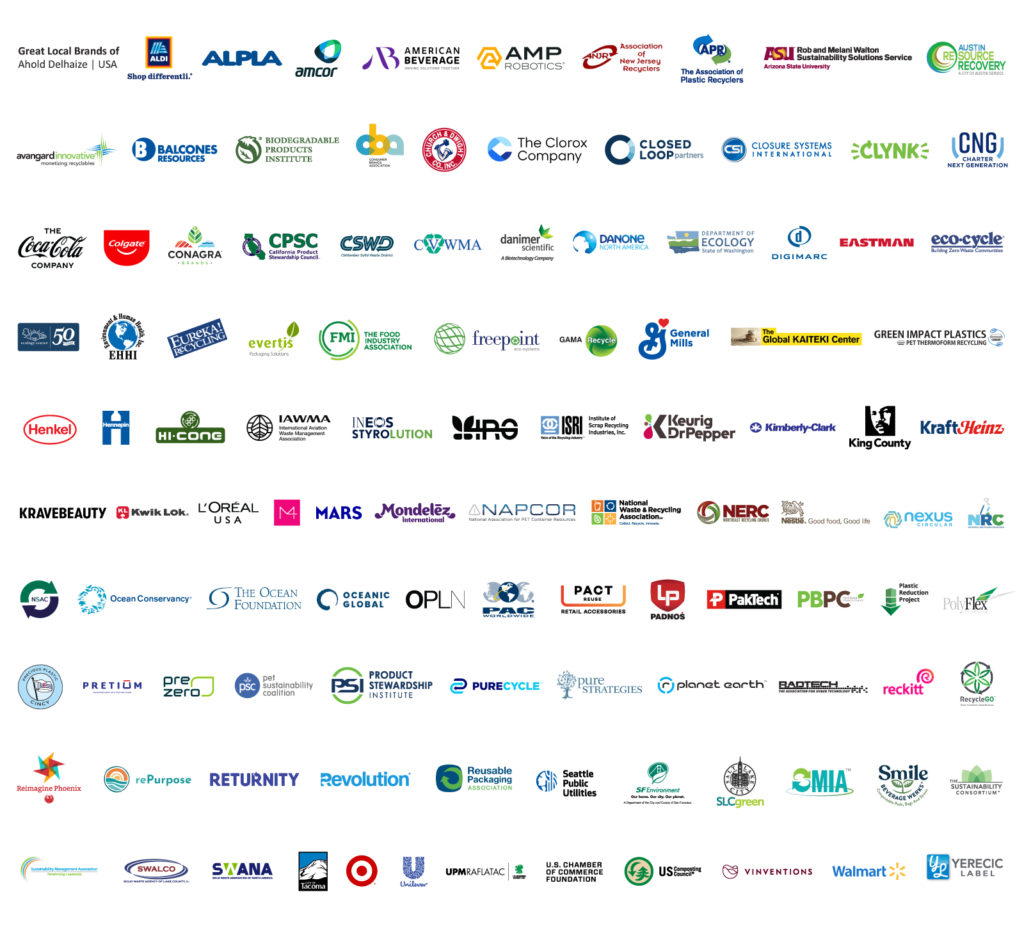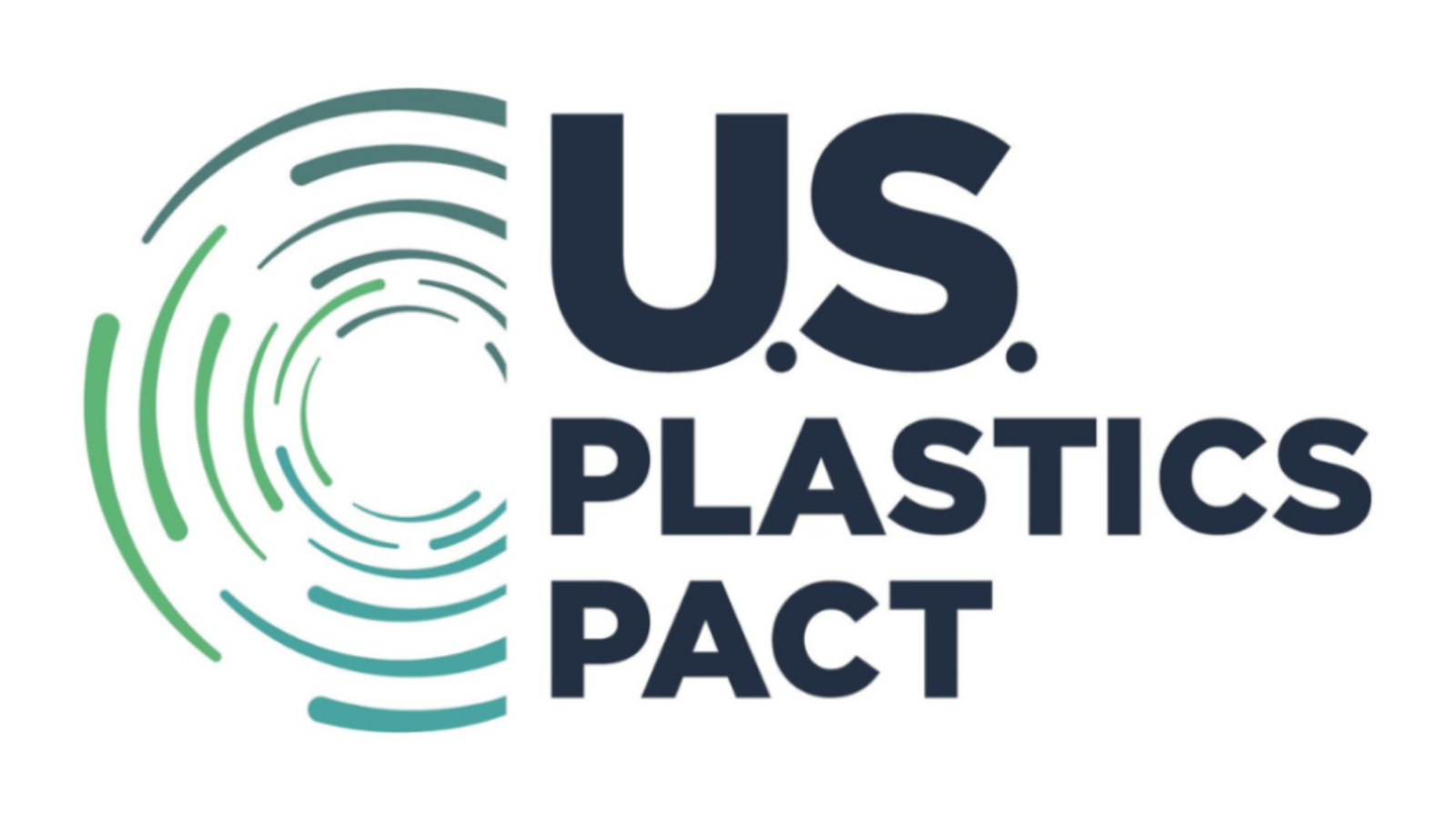The U.S. Plastics Pact is prominent in conversations among sustainable packaging professionals right now. What attracts so many companies to the U.S. Plastics Pact? What does it mean to become a member? We’ve got the answers for you.
What is the U.S. Plastics Pact?
The U.S. Plastics Pact is a consortium consisting of businesses, government agencies, non-profits, and research institutions with a vision for a more circular economy specifically for plastics. It brings together stakeholders for aligned action to move a plastic industry from one of waste to one of innovation. It was founded by the Recycling Partnership and World Wildlife Fund in 2020 as part of the Ellen MacArthur Foundation Global Plastics Pact Network. The network includes national plastics pacts in countries such as Canada, France, and Poland. It also includes the regional pacts of European and Australia, New Zealand, and the Pacifics.

Take Action
Joining the U.S. Plastics Pact is voluntary and requires a fee which varies depending on the size of the business (U.S. sales revenue). The fee grants members access to expert advice and workstreams. Workstreams advise on important topics in the plastics value chain such as policy, designing for recyclability, and on-pact labeling.
Activators, as the Pact calls its members, are required to partake in annual reporting and regular meetings. Activators also contribute knowledge and insights toward advancing the circular economy around plastics. Check out their roadmap for stakeholders.
The U.S. Plastics Pact has set forth four targets which activators are encouraged to incorporate into their sustainability goals. Those targets are:
- Eliminate problematic plastic packaging by 2025
- PVC, PS and PFAS-containing packaging are among the items targeted for phase-out by 2025.
- 100% of plastic packaging will be reusable, recyclable, or compostable by 2025
- Achieve an average of 30% recycled content or responsibly sourced bio-based content in plastic packaging by 2025
- Undertake ambitious actions to effectively recycle or compost 50% of plastic packaging by 2025
How Trayak can Help
At Trayak we offer the leading sustainability solution for packaging, EcoImpact-COMPASS. EcoImpact-COMPASS is used around the globe across all industries for establishing sustainability goals, modeling design changes, making decisions to reduce impact, and reporting.
Benchmark your Portfolio
Within EcoImpact-COMPASS, users can run reports on their entire portfolio to view numerous metrics at a company-wide level. An important first step along your sustainable packaging journey is to get a handle on your organization’s current environmental impact. We call this benchmarking.
Benchmarking is used to quantify and understand your existing portfolio. Furthermore it’s used to identify areas of focus and improvement strategies. If you don’t know where you are, how do you know if you are improving?
Evaluate Design Alternatives
Next, users can use the EcoImpact-COMPASS to run what-if design alternative comparisons from a holistic view. Analyzing design alternatives within EcoImpact-COMPASS is easy and quick. Analyzing alternatives early in the design process saves valuable resources.
Track Goals & Report
Whether you are making incremental changes or adopting radical changes, you can use EcoImpact-COMPASS to track your progress towards the U.S. Plastics Pact goals such as 100% reusable, recyclable, or compostable. Measuring impact on business to ensure you are moving in the right direction, then report to different stakeholders easily and without extra effort.
EcoImpact-COMPASS provides clients with a single, scalable platform to meet their sustainability goals, evaluate design alternatives, and report to consortiums such as the U.S. Plastics Pact.
Trayak has been helping leading brands of all sizes make data-driven sustainability decisions for over 10 years. If you would like to learn more about our tools and services please contact us.


Add a Comment
You must be logged in to post a comment